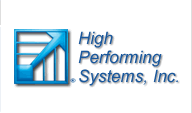Debra Cannarella
Director of Operations
As a leading provider of assessment feedback and certifications, HPS works with clients to coach executives and to certify other professionals on tools they can use within their own organizations. The following case study illustrates the value of using multiple assessment lenses to analyze a situation and build a customized coaching plan based on objective feedback results.
While starting a new coaching engagement with Sharon, the CEO of a large, urban, not-for-profit organization, she indicated feeling overwhelmed and stressed in her role. She had been in the position for about a year, and she didn’t think the job was taking the best advantage of her potential and areas of strength. To explore her situation in greater depth, we administered three assessments: the EQ-i 2.0®, a scientifically-validated measure of Emotional Intelligence; the Pearman Personality Integrator®, an assessment of personality that explores an individual’s natural personality dimensions and how often those dimensions are used; and the ARSENAL™, an assessment of the seven best practices of building stress resilience.
When we conducted the debrief on the EQ-i with Sharon, her results indicated higher scores in Interpersonal Relationships and Empathy. From a personality perspective, Sharon already knew she was extremely people-oriented, and the Pearman Personality Integrator indeed revealed a natural inclination toward Extraversion, with her energy being directed outwardly to the world and people in it. She is very comfortable engaging interpersonally and working collaboratively. Her results also indicated a natural tendency to generate ideas, brainstorm possibilities and explore future options. The ARSENAL indicated strengths in Awareness and Support.
When she was recruited for the CEO position, Sharon was told that the job was heavily focused on building relationships and partnering with other local agencies to expand offerings to their target demographic populations. The position sounded perfect for her: she would be able to work with people and collaborate about possibilities to serve the community better.
Her on-the-job experience, however, did not align with her expectations. Even though she was able to use Interpersonal Relationships and Extraversion in most aspects of her work, her job required much more attention to detail and fact-finding than she thought she would be doing. From an EQ-i perspective, Reality Testing (focusing on objective reality) was one of her lowest areas, and the Pearman Personality Integrator revealed that the amount of time she actually devoted to gathering facts and cataloging data was much higher than her natural comfort level. The ARSENAL Assessment indicated a high level of overall stress and the need for Sharon to improve her Rest and Exercise. In the coaching conversations, Sharon admitted that she felt overwhelmed with the amount of data and details she was asked to manage. She was physically tired and mentally exhausted at the end of each day.
To help her deal with her stress and get back into better alignment with her strengths, we coached Sharon to implement several strategies. First, she hired an administrative assistant to help with some of the data tracking and detail aspects of the job. This helped free up some of Sharon’s time to reallocate to other tasks.
She wasn’t able to eliminate all the detail work, however, so Sharon found a way to visualize the details differently. She used a large whiteboard in her office to sketch her big-picture goals and strategies in bold letters across the top of the board. When she had to deal with facts and details, she captured them on the board and connected them back to the bigger-picture plan. That way, she didn’t feel overwhelmed by the details but instead could see how they enabled the plan to happen. The repackaging of data as a means to the end was an eye-opening insight for her and re-energized her approach to gathering data to support organizational goals.
The last strategy was more personal but just as critical for Sharon. Based on the ARSENAL feedback, she implemented a stress management plan. She monitored herself daily (leveraging her high Awareness) and tracked her stress level on a chart. When she noticed her stress beginning to elevate beyond a comfortable level, she would increase her exercise as well as her rest. When she made sure to take care of herself, all the other stressors seemed to settle back into an acceptable range that she could control.
One of the keys to coaching Sharon successfully included the use of multiple assessment tools to provide feedback and insight that we used to understand her situation more completely. Each assessment alone provides only part of the picture; seeing the situation through different lenses helped to explain in greater depth why she was so stressed and what could be done to help. In addition, the plan developed for Sharon was based on a philosophy of playing to her strengths. We didn’t try to force-fit her into a plan that would exacerbate her stress. Instead, we leveraged the aspects of her personality, EI and life balance that came naturally for her.
Creating a coaching plan that really works starts with using validated assessments for constructive feedback. Multi-assessment feedback provides a clearer picture of a person's current situation, raises his/her self-awareness and acts as the foundation for targeted development that will help your client more successfully balance strong and weak areas.
Click here for a printable copy of this article.
_____________________________________
Debra Cannarella is the Director of Operations at High Performing Systems, Inc. (HPS), a consulting company that provides assessments, consulting and training solutions to help organizations excel. HPS conducts certification training on the EQ-i 2.0 assessment and provides individual, leader and executive coaching to clients. Contact Debra by email at debra@hpsys.com.
High Performing Systems is an award-winning world leader in EQ-i 2.0® certification (since 2005), EI training and implementation, leader coaching and success profiles. Call 706-769-5836 to talk with an experienced EI practitioner about your organization's specific needs.
|
